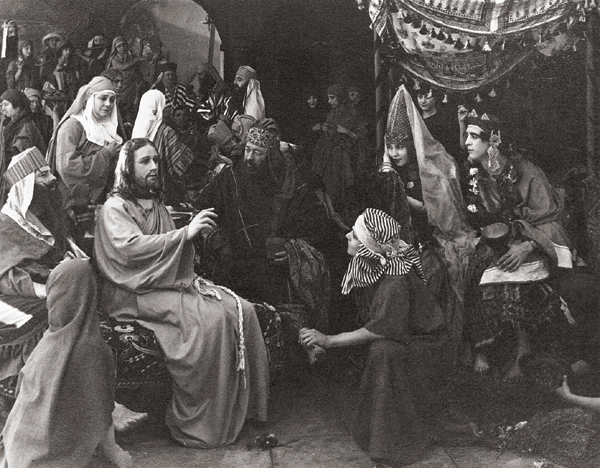Image Details

Museum of Modern Art
“Put your message here” should read a bubble over Howard Gaye, the actor portraying Jesus in this still from D.W. Griffith’s 1916 film, Intolerance. One of several movies of the 1910s and 1920s that used Jesus to promote their directors’ political agendas, Intolerance showed Jesus changing water into wine at the wedding in Cana, as recorded in John 2, because Griffith was opposed to Prohibition, which was soon to become law. To combat anti-Semitism, Griffith surrounded Jesus with “real, old-time orthodox Jews” in the wedding scene (the newlyweds can be seen together at right). Cecil B. DeMille also tried to counter anti-Semitism in his 1927 movie, King of Kings. DeMille had the high priest in the passion story claim sole responsibility for Jesus’ death, in apparent contradiction to Matthew 27:25, traditionally interpreted as placing the blame on the Jewish people. (Current interpretations place the blame on everyone who sins, thus requiring Jesus’ sacrifice.) Perhaps the most blatant example of the politicizing trend, however, was Thomas Ince’s film Civilization (1916). In its original release, in a year when President Woodrow Wilson was reelected for keeping the United States out of the war in Europe, Ince used Jesus’ story to espouse pacifism; but, in 1917, after Wilson changed his mind and sent American troops to fight Germany, the film was edited to have Jesus support war.
